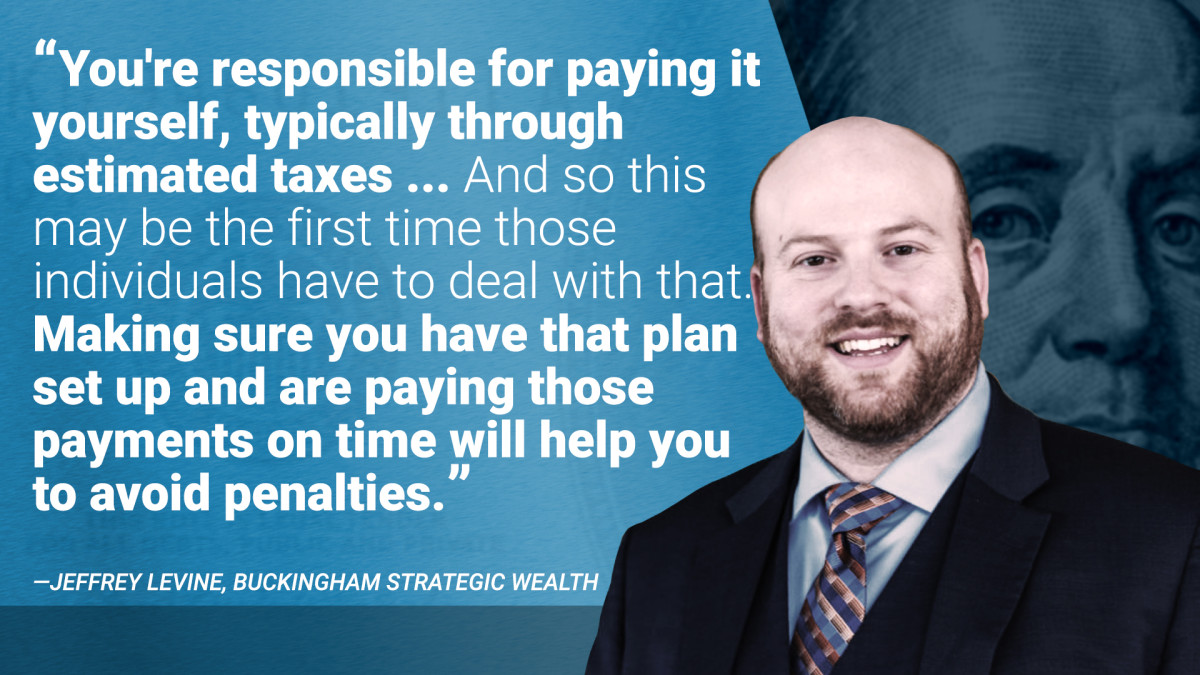Retirement Daily’s Robert Powell caught up with Jeffrey Levine, CPA and tax pro from Buckingham Strategic Wealth Partners, to discuss top tax tips for freelancers and gig economy workers.
TurboTax Live experts look out for you. Expert help your way: get help as you go, or hand your taxes off. You can talk live to tax experts online for unlimited answers and advice OR, have a dedicated tax expert do your taxes for you, so you can be confident in your tax return. Enjoy up to an additional $20 off when you get started with TurboTax Live.
3 Tips for Freelancers and Gig WorkersMake sure you have that plan in place to pay estimated tax payments on time to help you avoid penalties and interest.Decide what sort of entity you want for your gig workCreate your own retirement plan.Recommended Read: Self-Employment Taxes in Today’s Gig Economy
Quotes| Top Tax Tips for Freelancers and Gig Economy Workers Jeffrey Levine, Chief Planning Officer, Buckingham Strategic Wealth Jeffrey Levine, Chief Planning Officer, Buckingham Strategic WealthRecommended Read: TurboTax Tax Tips for Gig Economy Workers with Multiple Jobs
Video Transcript| Jeffrey Levine, CPA and Tax Expert, Buckingham Strategic WealthRobert Powell: Are you a gig worker or a freelancer? What do you need to know about your taxes? Jeffrey Levine from Buckingham Wealth Partners is here to talk tax tips with me. Jeffrey, what do freelancers and gig workers need to know?
Jeffrey Levine: Hey Bob. Well, I would say there are three things that kind of jump off the page at me. The first is gig workers are oftentimes paid as 1099 independent contractors versus as employed individuals who receive a salary. And when you have a salary, you generally have income tax withheld from that salary. So you’re kind of paying your taxes throughout the year kind of by default. Well, with payments as an independent contractor, generally, those federal withholdings, and state withholdings don’t happen. And you’re responsible for paying it yourself, typically through estimated taxes that are generally paid quarterly. And so this may be the first time those individuals have to deal with that. Making sure you have that plan set up and are paying those payments on time will help you to avoid penalties and interest down the road.
The second thing is what sort of entity do you want for your gig work? Now the simplest form would be just yourself, a sole proprietorship. That’s easy and it’s efficient. The challenge is that there are certain things that you don’t get the benefit of. For instance, you’re going to pay employment taxes on all of your profits. By contrast, if your gig job is really taking off, you may want to set up an S corporation to help shield some of your profits from the business from the same self-employment taxes. There are all sorts of reasons to have different legal structures, some of which involve taxes, and some involve asset protection. So thinking through that as to what’s the best course for you is the second one.
Finally, the third thing I would add is if you have your own business, you have a really amazing opportunity to create your own retirement plan. And even if you have a day job somewhere else, so to speak, that has 401(k) that you participate in, you can still create a SEP IRA, for instance, for your separate gig work to get additional dollars in to help save for your retirement down the road.
Editor’s Note: The content was reviewed for tax accuracy by a TurboTax CPA expert.
Zach Faulds contributed to the writing of this article and produced the video and/or the graphics associated with it.
